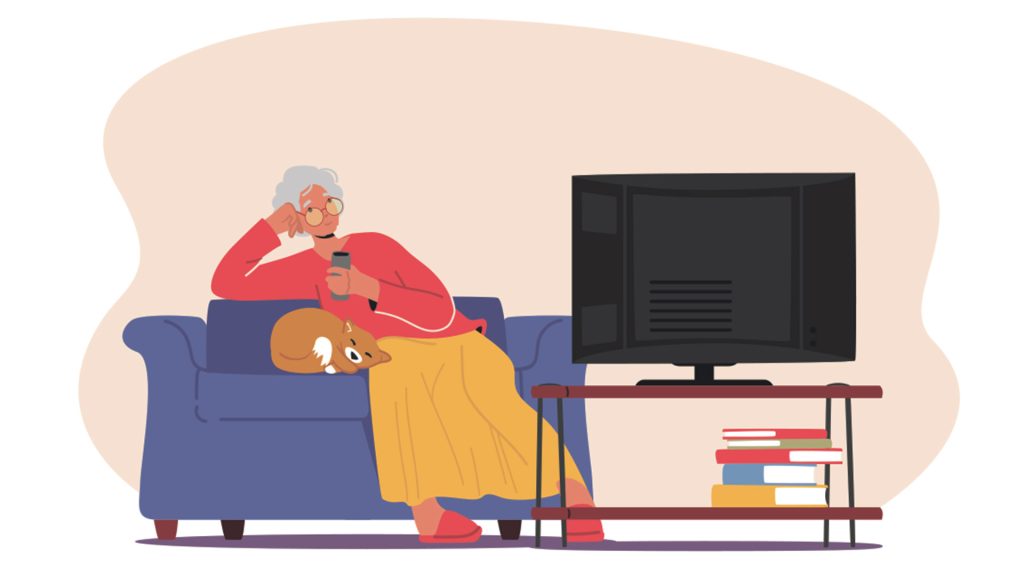Recognize the Signs of Elder Abuse
By Lynn Wolf

Elder abuse is a silent epidemic that affects millions of older adults worldwide. According to the World Health Organization (WHO), approximately one in six older adults experience some form of abuse in community settings, with the prevalence even higher in institutional settings such as nursing homes. Shockingly, a study by the National Council on Aging (NCOA) found that only one in 14 cases of elder abuse are reported to authorities, highlighting the pervasive underreporting of this issue.
Understanding Elder Abuse
Elder abuse encompasses various forms of harm inflicted upon older adults, including physical, emotional, sexual, financial, and neglectful mistreatment. It can occur in any setting, whether at home or in nursing homes, assisted-living facilities, or even hospitals. Perpetrators of elder abuse can be family members, caregivers, acquaintances, or professionals entrusted with the elder’s care.
Lynn Wolf
“If an older adult confides in you about abuse, listen with empathy and take their concerns seriously. Many victims of elder abuse suffer in silence due to fear or shame, and it’s essential to provide them with support and validation.”
Recognizing the Signs
Physical abuse may include:
• Unexplained injuries such as bruises, fractures, or burns;
• Signs of restraint such as rope marks on wrists;
• Refusal to seek medical treatment or delays in treatment for injuries; or
• Changes in behavior around specific individuals.
Emotional abuse may include:
• Withdrawal from usual activities or social interactions;
• Unexplained changes in behavior, such as depression or anxiety; or
• Verbal threats, insults, or humiliation.
Sexual abuse may include:
• Bruises or injuries around the genitals or breasts;
• Unexplained sexually transmitted infections; or
• Signs of distress or fear around certain individuals.
Financial abuse may include:
• Sudden changes in financial situation or loss of assets;
• Unexplained withdrawals or transfers of money; or
• Unauthorized use of credit cards or forging signatures.
Signs of neglect may include:
• Poor hygiene, including soiled clothing or lack of bathing;
• Untreated medical conditions or lack of medication; or
• Malnutrition or dehydration.
Taking Action
Stay vigilant. Keep an eye out for any signs of abuse or neglect, especially if your loved one is unable to communicate effectively due to cognitive decline or other health issues.
Listen and believe. If an older adult confides in you about abuse, listen with empathy and take their concerns seriously. Many victims of elder abuse suffer in silence due to fear or shame, and it’s essential to provide them with support and validation.
Report suspected abuse. If you suspect elder abuse, don’t hesitate to report it to the appropriate authorities. Contact adult protective services, local law enforcement, or a trusted elder-abuse hotline for assistance. In Hampden and Hampshire counties, Adult Protective Services is operated by Greater Springfield Senior Services. Contact them at www.gsssi.org/adult-protective-services or call (800) 922-2275.
Seek support. Reach out to organizations and support groups specializing in elder-abuse prevention and intervention. They can provide valuable resources, guidance, and emotional support for both victims and their families.
Prevention is Key
Educate yourself. Learn about the warning signs of elder abuse and the resources available in your community to address it effectively.
Establish open communication. Maintain open lines of communication with your loved ones and encourage them to speak up if they experience any form of mistreatment.
Conduct regular check-ins. Schedule regular visits or phone calls with your older relatives to check on their well-being and address any concerns they may have.
Create a supportive environment. Foster a supportive and respectful environment where older adults feel safe and valued, surrounded by caring individuals who prioritize their needs and rights.
Conclusion
Recognizing the signs of elder abuse is essential for protecting our older loved ones from harm and ensuring they receive the care and respect they deserve. By staying vigilant, taking action, and promoting prevention efforts, we can work together to combat elder abuse and create a safer and more compassionate society for older adults everywhere.
Let’s stand together to advocate for the rights and dignity of our elders and ensure they live their lives free from abuse and exploitation.
Lynn Wolf is Marketing and Development manager at WestMass ElderCare Inc.





